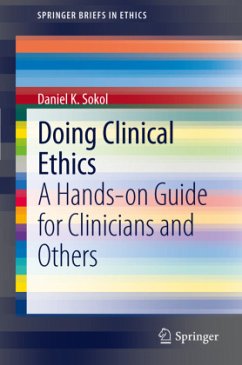
A Casebook in Interprofessional Ethics
A Succinct Introduction to Ethics for the Health Professions

PAYBACK Punkte
29 °P sammeln!
The first ethics casebook that integrates clinical ethics (medical, nursing, and dental) and research ethics with public health and informatics. The book opens with five chapters on ethics, the development of interprofessional ethics, and brief instructional materials for students on how to analyze ethical cases and for teachers on how to teach ethics. In today's rapidly evolving healthcare system, the cases in this book are far more realistic than previous efforts that isolate the decision-making process by professions as if each is not embedded in a larger context that involves healthcare te...
The first ethics casebook that integrates clinical ethics (medical, nursing, and dental) and research ethics with public health and informatics. The book opens with five chapters on ethics, the development of interprofessional ethics, and brief instructional materials for students on how to analyze ethical cases and for teachers on how to teach ethics. In today's rapidly evolving healthcare system, the cases in this book are far more realistic than previous efforts that isolate the decision-making process by professions as if each is not embedded in a larger context that involves healthcare teams, hospital policies, and technology. The central claim of this book is that ethics is an important common ground for all of the health professions. Furthermore, when we recognize that our professions converge upon a common goal we will find less conflict and more pleasure in working together.














